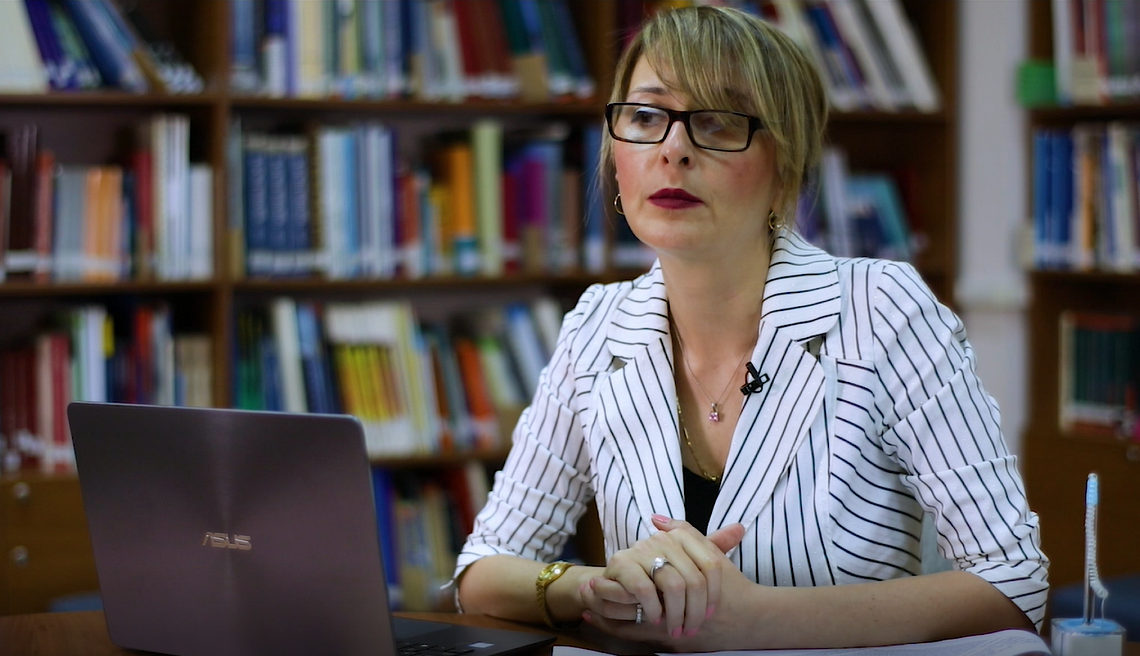
Predicting climate change impacts in Georgia
Landslides, mudflows, flooding, droughts, forest fires, strong winds – the geographically complex country of Georgia in the South Caucasus region has seen such natural disasters intensify in recent years, with substantial damage to infrastructure, farmland and people’s lives.
Climate change is considered to be a major factor: the government of Georgia has created a strategy to increase disaster preparedness and reduce risks and has become involved in international climate change mitigation activities. Research is crucial to preparedness. Lika Megrelidze, who is Head of Meteorology and Climatology at the Georgian National Environmental Agency explains how the Georgian Research and Educational Networking Association GRENA, with the support of the EU-funded EaPConnect project, is facilitating climate research in the country.
“Tbilisi State University, the National Environmental Agency and GRENA are implementing a ‘Study of some climate characteristic parameters variability over the territory of Georgia based on regional climate prediction modeling ensemble system’ project, funded by the National Science Foundation of Georgia,” Lika Megrelidze explains. “The research is using data obtained from global and regional climate models and from Georgian meteorological stations.”
“The main objective of the project is the development of a high-resolution regional climate prediction system in order to obtain more detailed predictions and more accurate information about extreme events. Dynamic and statistical methods using different regional climate models are being used to create these predictions.”
Clouds and Cooperation
Such mathematical modelling is possible only with the help of high-performance computing and data storage resources. Thanks to a Memorandum of Cooperation between GRENA and the Shota Rustaveli National Science Foundation of Georgia, signed in August 2019, this project is using GRENA cloud infrastructure to obtain these resources. The cloud facility was established with the support of EaPConnect.
“Simulations have been performed for the period of 1961-2100,” Lika Megrelidze says. “One of the main targets of the project is to study atmospheric circulation processes and reveal tendencies of change in cloud formation above Georgia. For this purpose, satellite and local observation data is being gathered. It is also intended to perform regional climate simulations for the Big Caucasus glaciers dynamics prediction.”
Glaciers, water and wood
Around two-thirds of Georgia is mountainous terrain that contains 734 glaciers. The number of glaciers has decreased by 13% in the past half century and their total surface area has reduced by 30%, with 94% of them having shrunk by a mean distance of 8m/year. The glaciers currently contain 30km3 of ice, 5% of which participates in the country’s annual water cycle. Glacier melting is a serious issue for water resource accessibility and contributes to flash flooding and mudslides. It is estimated that total melting of the glaciers could occur by 2160.
The average temperature in Georgia has risen by 1.3oC and is expected to increase to 3.5oC higher than the current indicator by the end of the century. Rainfall is expected to decrease by as much as 14% in some parts of the country. This will have an impact on vegetation: forests cover almost 40% of the land area, playing an important role in the Georgian economy and supplying up to 12% of the energy demand, as well as providing timber for construction.
A long-term view
It’s important to be sure that measurements and predictions are as accurate as possible. This is another goal of Lika Megrelidze’s project. “An outcome of the project will be long-term (century-scale) predictions of essential climate parameters – temperature, precipitation, wind, humidity – as well as extreme climate scenarios. Since the uncertainty of this forecasting system is high, due to the imperfection of each component, an assessment of forecast probability will be conducted.”
Results of the study have already been used as evidence in the Georgian Fourth National Communication to the United Nations Framework Convention on Climate Change (UNFCCC). “Based on this, the impact has been estimated of climate change on various ecosystems – glaciers, pastures, soils – and sectors such as agriculture, health, energy, tourism, and culture, as well as on the dynamics of hydrometeorological and geological disasters,” Lika Megrelidze concludes. “Recommendations for adaptation measures were developed in order to reduce the negative impact of climate change.”
Role of GRENA
Besides being an active participant in the research project, GRENA is providing computing and storage resources and technical support in porting applications in its Cloud infrastructure.
Two further studies on weather forecasting and climate change for the territory of Georgia are receiving GRENA’s help with computational and storage resources in line with the Memorandum of Cooperation, implemented with the support of the EU-funded Eastern Partnership Connect project, EaPConnect.
For more information please contact our contributor(s):


